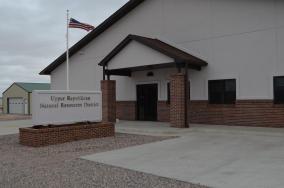About
About

Formed in 1972 by the Nebraska Legislature, the Upper Republican Natural Resources District is one of 23 local governing bodies helping to protect Nebraska’s natural resources. The Upper Republican Natural Resources District is based in Imperial, Neb. and is comprised of Dundy, Chase and Perkins Counties in the southwest corner of the state. The Upper Republican is a diverse District, having approximately 450,000 acres of land that is irrigated with groundwater, 390,000 dryland acres and 887,000 acres of rangeland. There is a significant amount of groundwater within the District - approximately 150 million acre feet as estimated by the United Stares Geological Survey, and more groundwater and surface water on average flow out of the District annually than flow into it.
Despite the abundance of groundwater in the District, it has taken many steps over the years to preserve water. In 1978-1979 it became the first NRD in the state and possibly the first government entity in the U.S. to regulate groundwater use, setting an allocation of 20 inches per acre. Since that time, the allocation has dropped 35% and other rules have been adopted to preserve water for future generations and slow groundwater declines, such as a well-drilling moratorium approved in 1997, a first for the state. More recent rules changes including steep penalties for those who over-use their water use allocations and restrictions on how much unused allocation from previous years, commonly called "carry-forward," can be used during an allocation period.
NRDs have local leadership responsibility for protecting groundwater from overuse and pollution; soil conservation; planting trees and wildlife habitat; flood control; improving urban conservation; and recreation. Often, the NRD builds partnerships with other agencies and organizations, including the USDA Natural Resources Conservation Service, universities, municipalities, counties, and private organizations, in an effort to provide local control and local solutions to natural resources challenges. NRDs encourage stewardship by providing financial assistance to landowners for irrigation water management and best-management practices to protect water. NRDs are not just water protectors; in some cases they are providers. A number of NRDs operate water systems for rural customers.
With information, education and outreach efforts, NRDs also touch Nebraska's future generations, the young people who will watch over the state's resources in the 21st Century.



